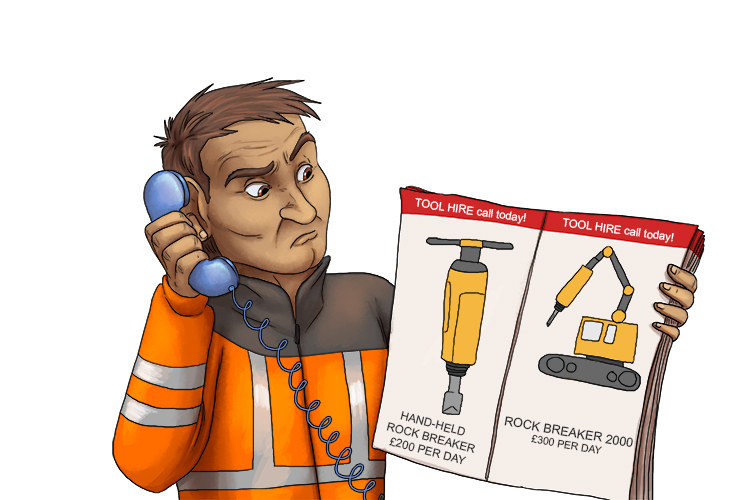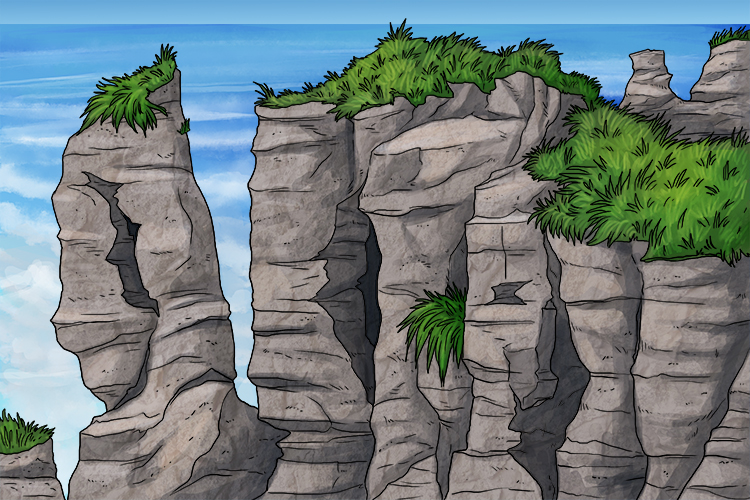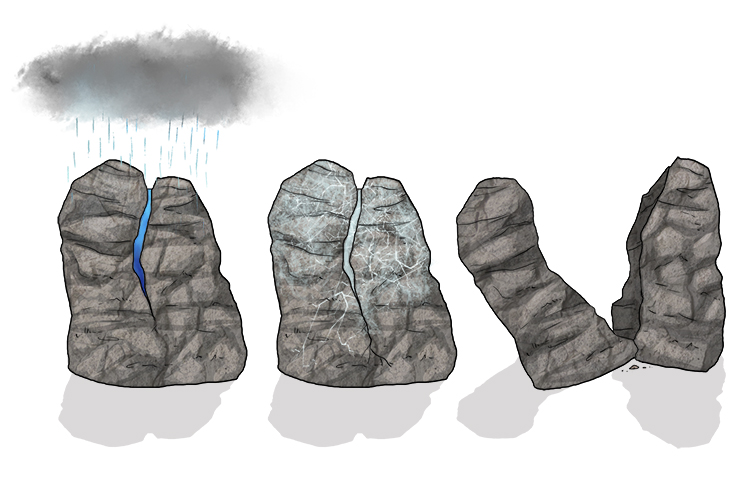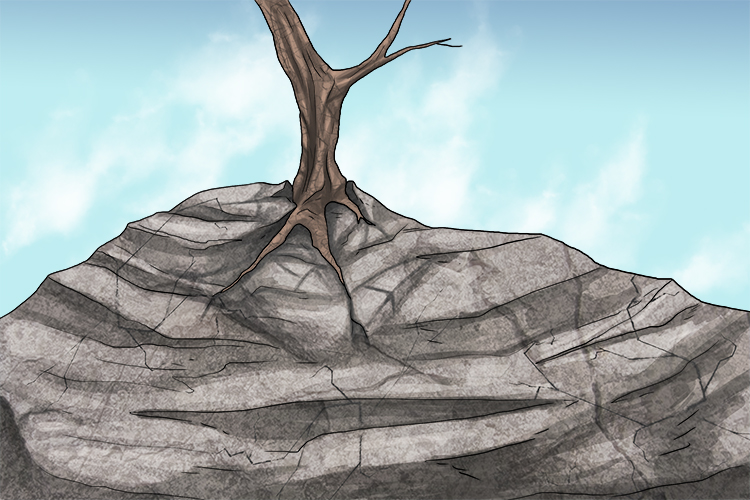Chemical Weathering – The decomposition (or rotting) of rock caused by chemical change within that rock
Note: Sea water can cause chemical weathering of cliffs.
The key to learning what chemical weathering means is to first define and understand what weathering is.
Weathering is the process that breaks down rock.
To remember the meaning of the term Chemical Weathering, use the following mnemonic:
I can't decide whether to ring (weathering) for the hand-held rock breaker or the rock breaker vehicle.

The term chemical weathering is now easier to understand. It is the chemical reaction with the rocks that breaks down the rocks.
Chemical weathering is when chemicals in rain and moving water (such as rivers or the sea) react with rocks and minerals to change or weaken them. Chemical weathering can cause some type of chemical reaction within the rock or mineral itself to form new minerals, clays and soluble salts.
If a coastline is made up of rocks such as limestone or chalk, over time they become dissolved especially by acid in water.

Apart from chemical weathering there are two other forms of weathering = physical and biological:

Physical weathering is caused by the effects of changing temperature on rocks, causing the rock to break apart as in freeze-thaw action.

Biological weathering is caused by plants and animals.




